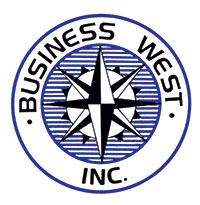I was talking recently with a prominent community leader and he summed up the Google situation.
“We don’t know what the answers are. We don’t even know what the questions are,” the leader said.
More than 1,000 people gathered at noon Wednesday, March 30 in the Wyandotte High School auditorium to hear that Google had chosen Kansas City, Kansas, to install Internet cable that would be 100 times faster than provided by existing Internet companies.
The announcement was kept under wraps for some timeundefinedthose involved signed confidentiality statements pledging not to reveal details until the appointed time.
Google chose Kansas City, Kansas, because its older utility infrastructureundefinedabove-ground poles, would allow a more cost-effective opportunity for stringing cable. And the underground cable conduit in newer suburban areas of Kansas City, Kansas, has adequate room to add the Google lines.
A Google spokesperson said that another major factor in making the decision was that the municipal government owns the Kansas City Board of Public Utilities and that it had to negotiate with only one governmental entity.
This will be the first such high-speed installation in the country; this should attract businesses who take advantage of high-speed transmission. The Google operation would allow those who want to use video teleconferencing at a very reasonable cost.
Madison, Wisc., one of more than 1,000 cities that was competing for the Google project, said it estimated it would mean a $97 million investment and 1,000 new jobs.
Jobs are important. And boosting the commercial tax base is also important. But will this mean all mean more rooftops? I would hope so.
Two computer science graduate students at Stanford University, founded Google in 1996 in a garage in nearby San Margarita, Calif. Sergey Brin and Larry Page began coding a search engine called “Backrub.” By 2000, Google became the world’s largest search engine. By 2010, Google had more than 21,000 employees around the world with an estimated market value of more than $120 billion.
An estimated 97 percent of Google’s revenue comes from advertising. Google paid $1.65 billion for You Tube in 2006.
So is Google too big? The Federal Trade Commission is asking that question according to a recent article in Bloomberg Business Week. The article said that Google’s dominance in search engines gives it a big role in determining where consumers do business on the Internet. There have been hints that the federal government may be looking into anti-trust action.
I talked with a prominent media consultant recently and asked him about the Google announcement. He had not heard of it and was surprised that Google would invest in stringing cable. He said that a wireless application would make more sense. He said, however, that Google was a very cash-strong company,
Google is based in Mountain View, Calif. I visited with a former employee of a company who was next door to Google.
“They were a great neighbor,” the person said. “Their employees were very happy. They had great Friday afternoon parties, complete with bands and food. Many of their employees were in their 20s.”
Most of the recent growth in Wyandotte County has come as a result of tax concessions. Google is not asking for any tax dealsundefinedbut that doesn’t mean that other companies that will be attracted here won’t have their hands out. However, the welcome that Google has received and the fact that it will be the first to offer Internet service at 100 times faster than what is available todayundefinedwould make it the “preferred provider.” And the company is looking at new opportunities. One Internet story said Google might provide service stations for recharging electric cars. Another story indicated that the company might go into the energy trading business.

Murrel Bland is executive director of Business West.
